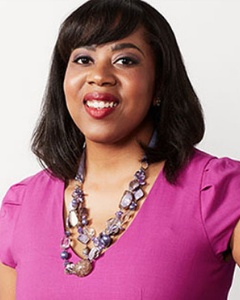
 By Dr. Patricia Thompson
By Dr. Patricia Thompson
Senior Consultant
Like most people in the world, my life has been totally upended by Covid-19. From homeschooling my first grader, to canceling a Spring Break vacation and a trip up to Canada to visit my mom for Easter, to spending the majority of every day inside our house, this wasn’t exactly the April that I had anticipated.
I’ve also been responding to a lot of questions about how to cope – whether through apps or journalists who have asked me to provide my expertise, people who have sent me messages on Instagram, or others who have sought me out to give advice via podcasts or webinars. What the bulk of the questions I’m receiving have in common are underlying emotions that people are having difficulty dealing with – anxiety, fear, uncertainty, guilt, and anger, to name a few.
In my sessions with clients (all done online – another unanticipated change), I have heard similar stories. For some, work responsibilities have ramped way up, and they’re trying their best to avoid burnout, as they struggle to balance all that they need to get done in their professional and personal lives. For others, things have slowed way down. Yet, despite all the extra time, many are still finding it challenging to be productive, as the underlying sense of dread and worry in our world is seemingly at odds with creativity, focus, and producing one’s best work.
On a personal level, I’ve been using the principles of mindfulness to help me to deal with all that is going on these days. Mindfulness meditation, which is something that a lot of people think of when they hear the term “mindfulness,” has been a Godsend. Simply taking the time to get quiet and breathe deeply has been a powerful tool for helping me to relax my body and center myself when I can feel myself getting wound up.
Psychologist Jon Kabatt Zinn defines mindfulness as “paying attention in a particular way: on purpose, in the present moment, and nonjudgmentally.” Essentially, this means that to be mindful is to be purposeful about directing one’s attention. Instead of letting your thoughts run wild, you take a step back from the chatter and are intentional about where you put your focus. In addition to my meditation, I’ve found the practices of being present and nonjudgmental to be incredibly helpful in keeping me sane through this time.
For example, for the past three weeks, I had been coping pretty well through all of the changes while we have been sheltering-in-place. Then, on Friday morning, we received the notice that my son’s school would be virtual for the rest of the academic year. Although initially, I took the information in stride, in the afternoon I noticed that I was experiencing tension in my upper back. From experience, I know that this is how I manifest stress, so I got quiet and checked in with myself. When I got quiet, I realized I was feeling some anxiety – thinking ahead to seven more weeks of a disrupted schedule, and wondering how I would manage it all.
At that moment, I decided that I would focus on the present moment. Contemplating a time seven weeks from now (or even one week from now), wasn’t going to help me at that moment. And, given the current uncertainty of our world, how could I even know what two months from now would look like?
So, I brought myself into the present by going outside and taking a walk. As I strolled through my neighborhood, I focused on the feeling of my feet hitting the pavement, the sounds of the birds around me, my heart beating in my body, the beauty of the trees, and the feeling of the breeze on my skin. As Eckhart Tolle wrote, “The only thing that is ultimately real about your journey is the step that you are taking at this moment. That’s all there ever is.” By bringing myself to the present, I was able to center myself and remind myself that the only power I have is right now. And, deciding to take things one step at a time, each moment by each moment, gave me a sense of peace.
Practicing non-judgment, or “radical acceptance” has also been really helpful for me. When you radically accept an experience, you are acknowledging that some things are simply out of your control. On the flipside, when you resist what is happening, it can add additional layers of distress and anxiety to your experience. Accepting the situation doesn’t mean that you like it, approve of it, or that you would have chosen it. But, it allows you to stop expending energy wishing that things are different than they are, so that you can act and make decisions from a more centered place.
I hope that you’ll be able to use some of these principles to help you to cope with these unprecedented times. If you’re able to, I encourage you to use your time sheltering-in-place as an opportunity to do things you wouldn’t normally give yourself permission to do, due to perceived time constraints – taking walks, connecting with loved ones near and far via Zoom, eating dinner together as a family, or practicing self-care, to name a few. If, on the other hand, your schedule has ramped up due to Covid-19, I encourage you to breathe deeply, bring yourself in the present moment, and be compassionate with yourself.
We will get through this.
Patrica Thompson, Ph.D.
TLG Senior Consultant
PTompson@turknett.com



 By Dr. Patricia Thompson
By Dr. Patricia Thompson